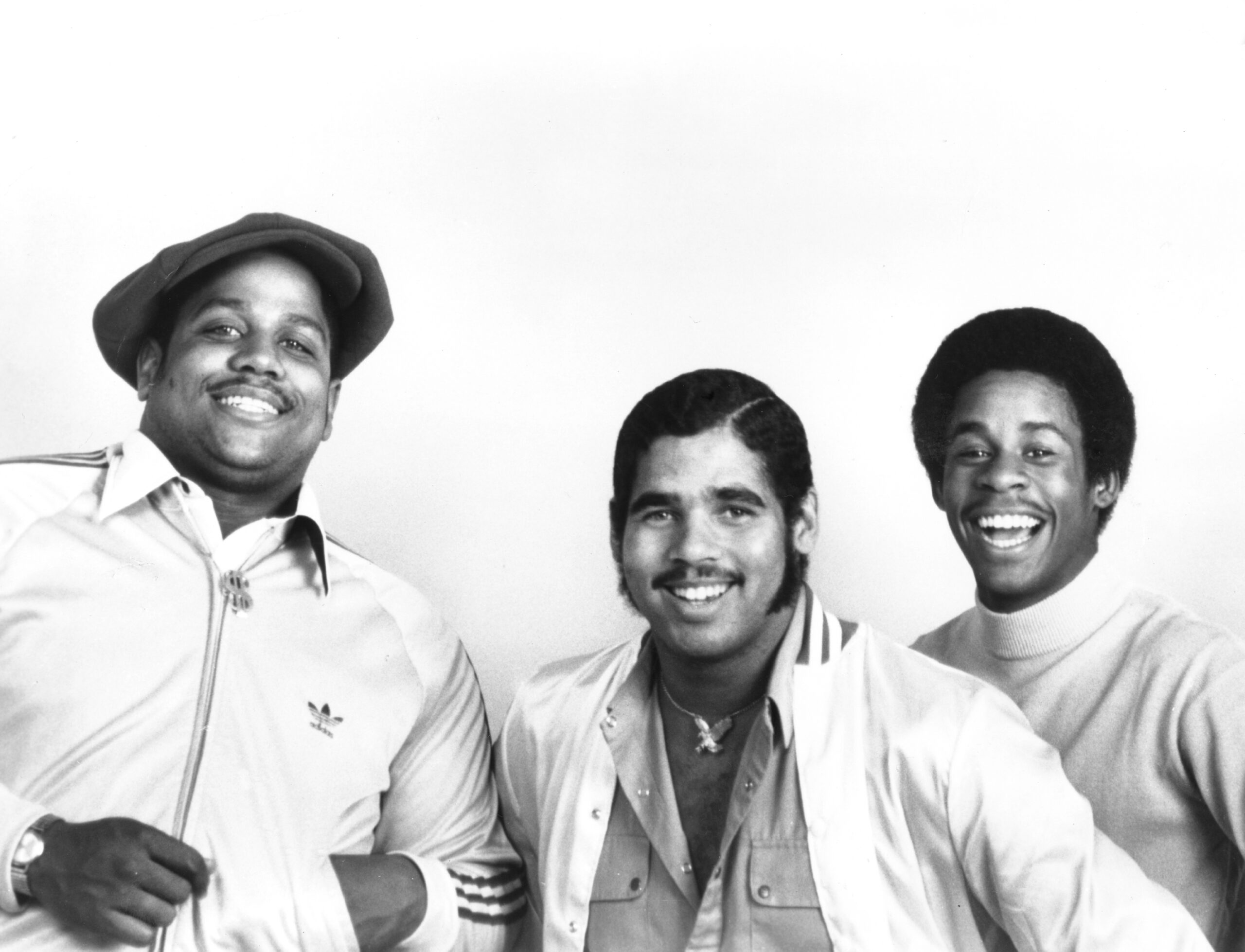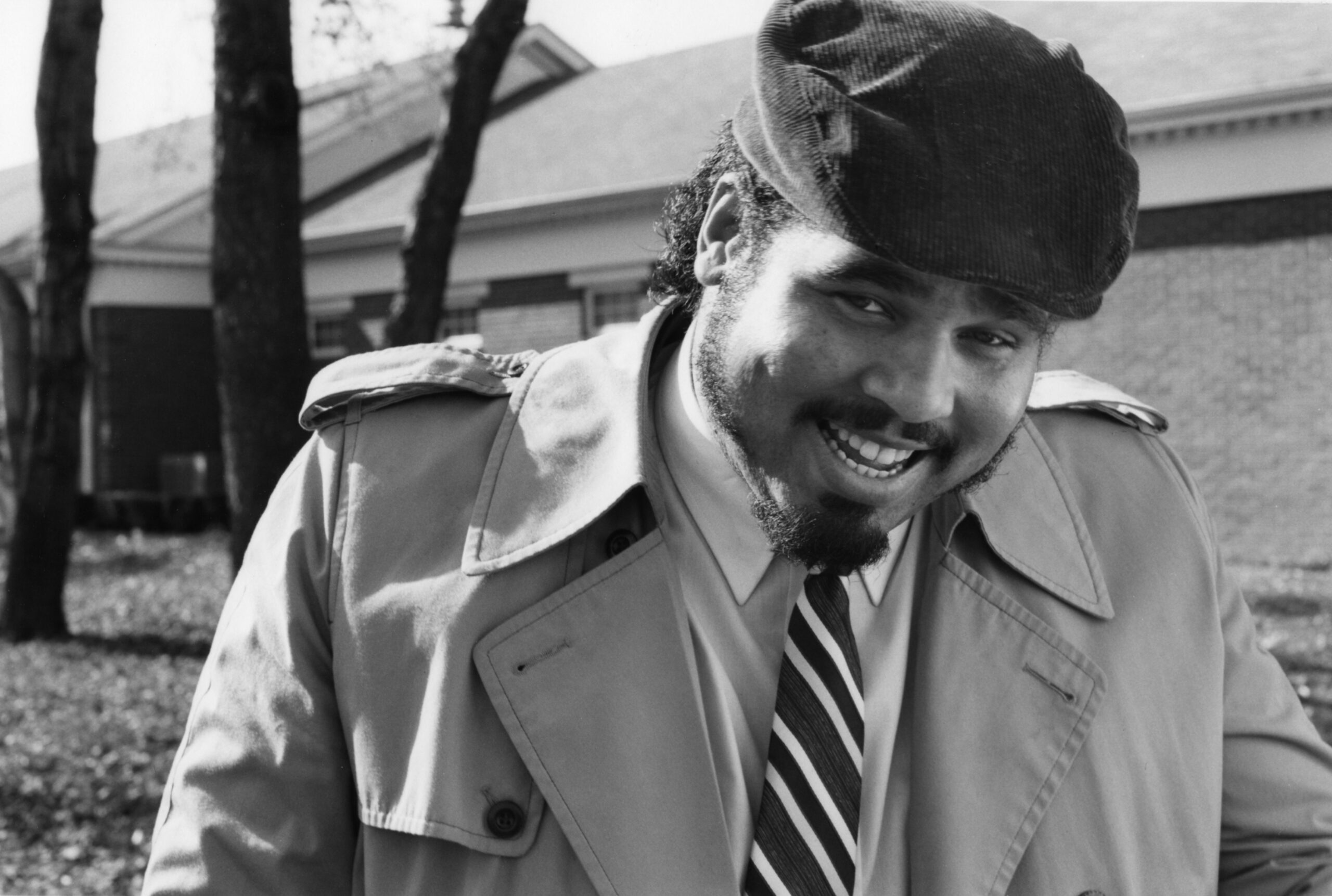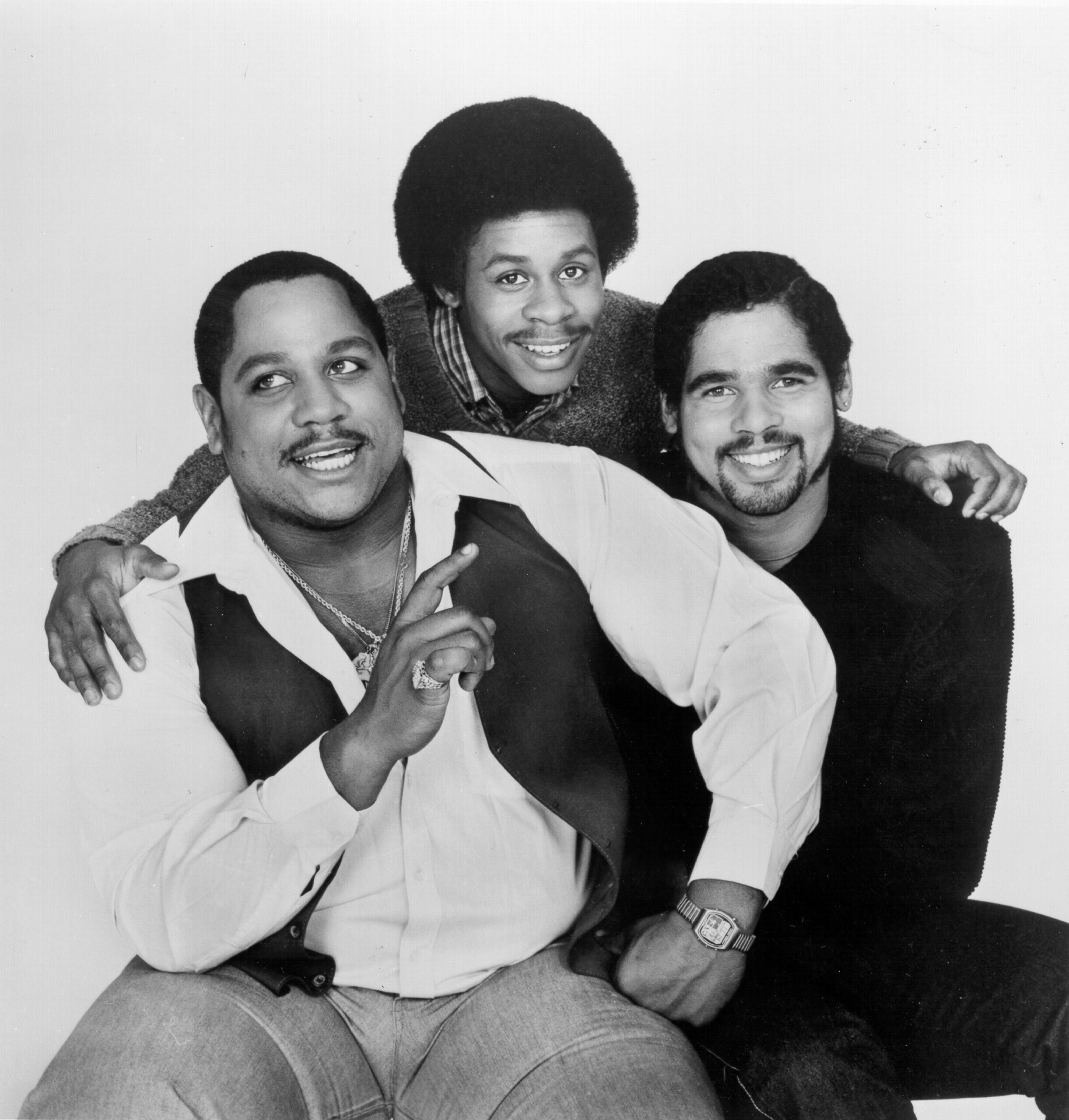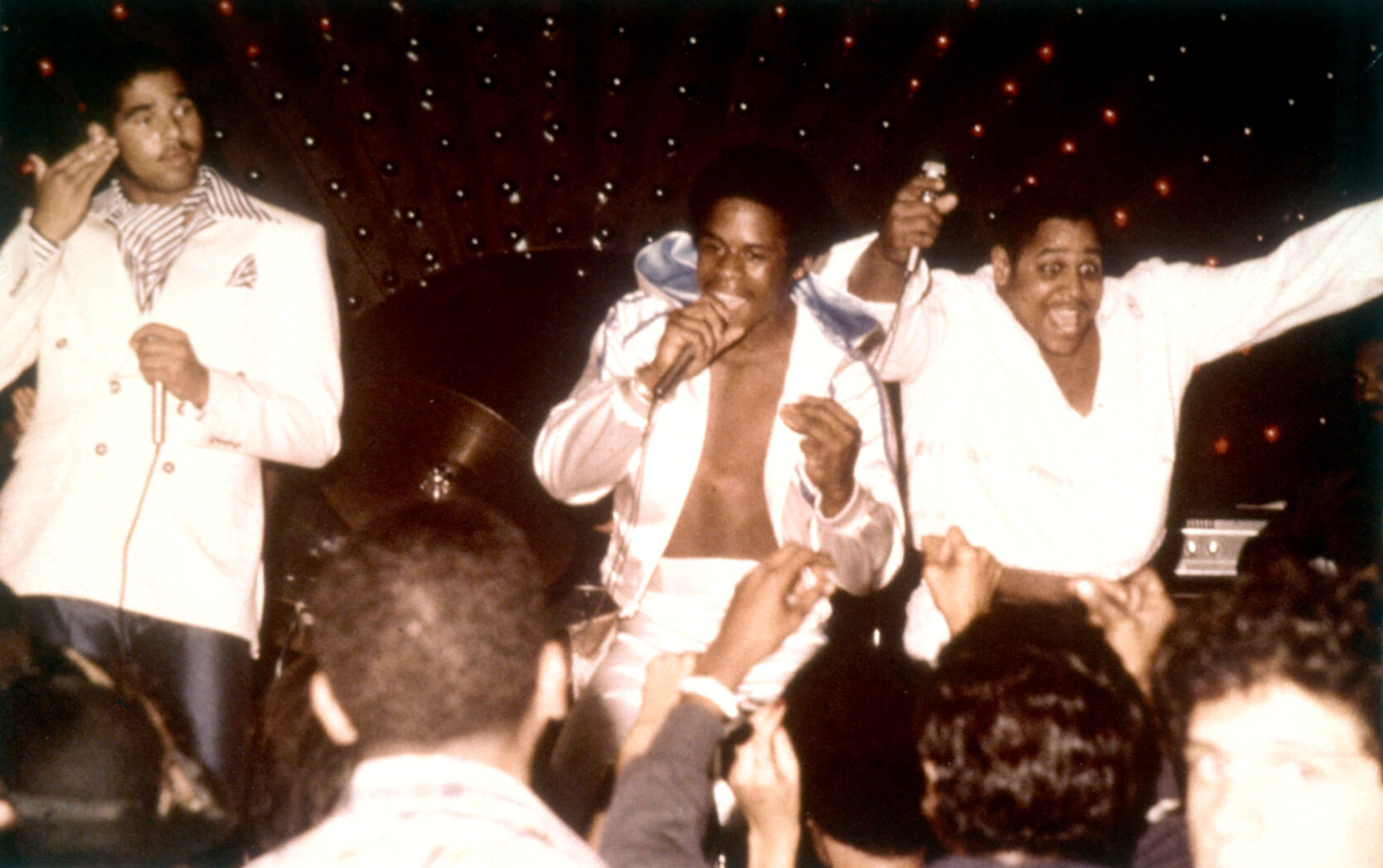Wonder Mike (né Michael Wright) had been rapping for just two months when Sugar Hill Records founder Sylvia Robinson changed his life. It was 1979 and Mike had just joined a group called Sound on Sound — but not for long. By chance, Sound on Sound’s DJ had heard Robinson was holding auditions for a new hip-hop artist. Homeless at the time and desperate for a change, Mike decided he’d give it a shot.
Later that day, he found himself at Robinson’s luxurious New Jersey home, competing against two other local rappers, Guy “Master Gee” O’Brien and Henry “Big Bank Hank” Jackson, for the role. Robinson couldn’t choose and ultimately picked all three to be in a trio she dubbed The Sugarhill Gang. Before the summer was over, they’d recorded — in just one perfect take — a groundbreaking megahit: “Rapper’s Delight.”
Released in September 1979, the 15-minute record transformed the musical landscape and helped introduced hip-hop to a mainstream audience. Commercially, it peaked at No. 36 on the Billboard Hot 100 and No. 3 in the U.K. As Wonder Mike recalls, Chic’s Nile Rogers and Bernard Edwards threatened a lawsuit against Robinson and her label for using their 1979 disco anthem “Good Times” as the blueprint for “Rapper’s Delight.” Controversy surrounding the track’s lyrics also tainted its triumph on the charts. Fellow hip-hop artist Grandmaster Caz had actually written Big Bank Hank’s verses, a practice highly frowned upon back then.
To date, “Rapper’s Delight” remains one of hip-hop’s most important and influential songs. We spoke to Wonder Mike about the making of the track and some of the pitfalls along the way.
The Set-Up
We all had our own repertoire of raps, and we just had to put them on the record. And since I was going to be the first on the song, I didn’t want to just come out rapping out of my fucking face. I wanted to set it up right because the world hadn’t heard rap — only New York, Jersey, and maybe Connecticut. So, I started, “Now what you hear is not a test.” I got that from the TV show Outer Limits.
Then I thought, “Well, who are you?” So I say, “I’m Wonder Mike, and I’m rapping to the beat.” I introduced Hank, and the song took off from there. But that’s how the song got set up. They pressed record, the intro came on, and I started the record. We didn’t stop for the whole [recording], except for when I say, “Come on, Hank, sing that song.” He was just looking at me, and I’m like, “What are you doing? Where you at?” And that was the only time we stopped in that song.

Rags to Riches…Literally
I was between residences when we recorded that song and when I auditioned. Miss Robinson didn’t know who to pick. She originally wanted one rapper, but we all went up there. We were up at her house until like 3:30 or 4:00 in the morning. She said she couldn’t decide, so she put all three of together to make the group. She said three was her favorite number because she had seen groups in the past with three members like the Moments and some other people. That was a Friday night — and she didn’t bullshit.
On Monday, we went down to the studio and a group called Positive Force laid down the music. It took about eight hours. They played everything for 15 minutes — actually 19 — and we cut it down to 15. And then we went in there and did our parts. I was on the left, Hank was in the middle, and Gee was on the right. That was it.
I was still homeless when I recorded “Rapper’s Delight.” We listened to it until about 4:00 a.m., and everybody said, “I think we might have a hit here.” And I said, “Play it again!” I had nowhere to go. I thought to myself, “Well, I can kill two hours and then go to the diner or something when it opens.” But everybody started leaving, and I was pretending I was waiting on my cousin in the parking lot of the studio, but I was really going to go across the street to the park. Miss Robinson pulled up and said, “Hey, Mike, what are you doing?” I told her I was waiting on a ride from my cousin. She said, “No, you’re not. You’re going to sleep in that park.” I was like, “Oh, wow.” I couldn’t say anything. She said “jump in,” and I went from the park to her eight-bedroom, Spanish-style mansion up on a hill.
I was emotionally blank when she said that. I was like, “Oh, damn, I don’t want anybody to know this shit.” But she’s driving a Rolls-Royce, and I know she’s got money because she’s Sylvia Robinson. Pride is foolish. It’s the original sin. This was August. Next month was September, and the seasons were getting colder. I thought, “Nope, I’m getting in the car—nevermind this pride mess.” I got to her house, everybody was asleep and she went to bed. I was down in the kitchen, and there were some dinner rolls that were rising on the counter. I didn’t know anything about rising rolls, and to me, they were half-baked. So, I ate 10 half-bakedrolls. To me, it tasted like steak.

All Night Long
There was nothing hard about making this record. Nineteen minutes wasn’t nothing to us because we’re used to throwing parties—that’s forever on record. But it didn’t feel like anything to us because we were used to rapping all night. All of us were instrumental in making the song. It was collaborative effort. I was influenced by hunger pangs in my stomach. I was influenced by looking up at night and seeing the stars instead of a ceiling.
To tell you the truth, I was never insecure. But I knew my bad luck had to turn around somehow. I was trying to make it turn around. I was working at a candy factory, moving furniture, breaking up swimming pools and hauling them away. I was going to go into the Air Force, but then I heard about the audition. I was the last one to audition, but we all got the job. And that was that.
Working Like A Dog
I was 22 years old when “Rapper’s Delight” came out. Fifteen years earlier, at just seven years old, I went to see A Hard Day’s Nightwith the Beatles. Women were going nuts and screaming and all that, and that’s what they did at our shows. It was like deja vu. And the Saturday after our first two shows, Miss Robinson took us to 225thStreet in Harlem. We got a bunch of clothes and we walked around, and we kept hearing “Rapper’s Delight” in the stores…from different radio stations in cars, barber shops, butchers, clothing stores, buses, tow trucks—everybody was playing it. But we knew we had a hit the night we recorded it because nobody had ever done it. They hadn’t heard this yet.
Living the Dream
It’s crazy because there are a million hip-hop groups now, and there’s been like six…seven different genres, time periods, and styles. The first voice they heard on this record was mine, Michael Wright, son of Dolores and William, who grew up in Newark. Me. We used to sing Beatles songs after school and the girls would chase us just like A Hard Day’s Night. I dug it. Next thing I know, it’s happening in real life. I’m living it.

Mike Vs. Wonder Mike
I catch myself sometimes just in awe of what I’ve accomplished. But when I’m at home, I take the trash out, whatever, and I don’t trip about this business. I’m just Mike at home. When I cross a threshold into that arena into that world, I have a healthy respect for my position in this business.
Before There Was Instagram…
We didn’t have an official music video for “Rapper’s Delight,” but somebody filmed our performance one night at the Soap Factory in New Jersey. It was right next to Route 80. They used to actually make soap and then it turned into a coffee shop. By September 1979, when we performed there, it was a club. But seeing the video doesn’t elicit anything nostalgic anymore. It used to. But I’ve seen it a trillion times and I remember that night. That’s about it. But if it’s a good day, hearing “Rapper’s Delight” takes me back to the early days when the song was new. And, you know, the girls would chase us off the stage before we finished, and we’d have to run out the alley. Those are good memories.
Chic Regrets
Nobody went about it doing it the right way as far as getting written permission and all that. If you’re going to cover a song, I think that’s different. I don’t think you have to get permission to cover a song, but if you use part of a song to make a new song by you, then you gotta straighten that shit out.
Some things worked out and some things never will because of how they were situated the first time. When we first dropped the record, our names and Miss Robinson’s name was on it—not Nile Rogers and Bernard Edwards. They sued. We said, “Okay,” but the next round of records had only their names and none of ours. I think it stayed like that for like 40 years. We were like, “No way, Motherfucker. You didn’t write any of our lyrics. We did. Put our name on it.” We didn’t write the music and I’m a fair person, so we put your names on it. You didn’t write any of the lyrics, so put our names on it. But we didn’t redo “Good Times.” We should have just had what Chic sang, then it wouldn’t have been a problem. But we made a new song using their shit. I’m glad they finally gave Curtis Brown [Grandmaster Caz] his props. He wrote all of Hank’s raps. We’re still getting love off of it.
I Said-a Hip, Hop
My advice to my younger self would be to keep writing. I got married and had four kids. That was 13 years where I wasn’t doing anything with music. Nothing. I was moving furniture, painting houses and refinishing wood floors. which I loved because it was my company. I didn’t work for anybody. But when I got divorced, I kind of gave my ex-wife the company and I was like, “I’m not going back to being assedout.” So, I got back with the guys and started touring.
My relationship with Master Gee is good. I don’t have any relationship with Hank obviously because he died [in 2014], but me and Gee are still tight. In fact, we were still going out until I got sick last year. Sugarhill Gang still goes out, but they have a replacement for me right now. People are understanding because who the fuck sticks together for 40-something years? That’s rare. When you think about it Journey was together for 10 years, we were together for 43. But yeah, I gotta get back on stage—and I will.





